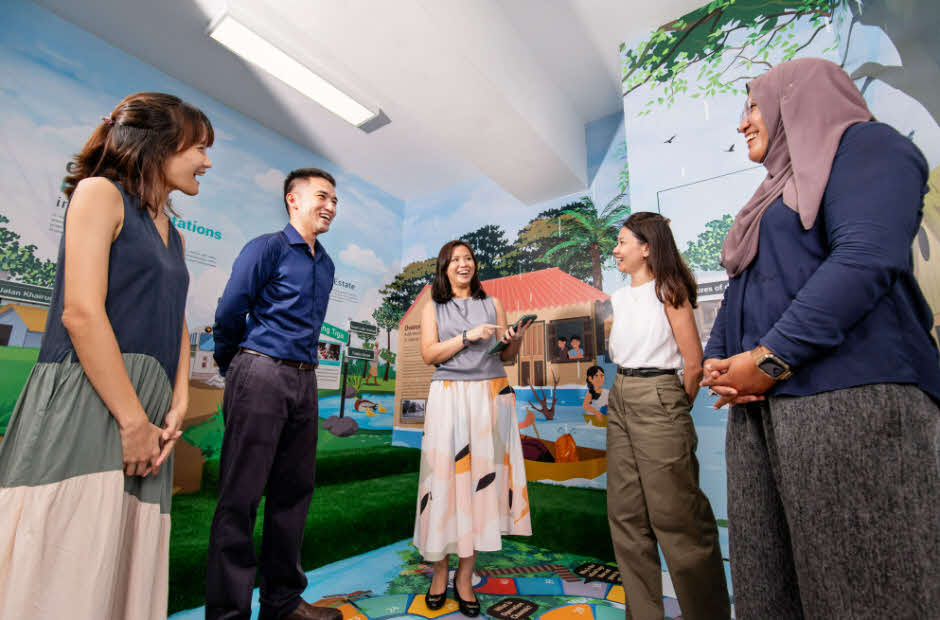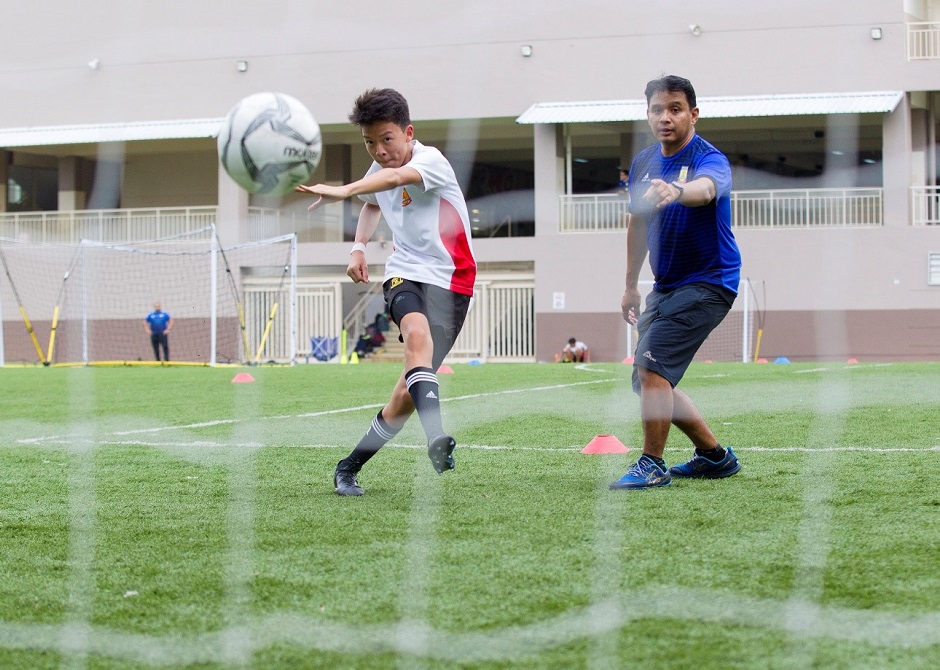Ms Chua belongs to a rare group of educators who have taught at not one, not two but three education levels – junior college, secondary school, and now primary school.
It started with her growing belief that children can never be too young to be given skills to navigate their world. “Social and emotional competencies, and a sense of identity and belonging, are some of the soft skills that could prepare them for life,” she says.
Belief led to conviction during her attachment to the Ministry of Education’s Guidance Branch, which oversees a part of the national Character and Citizenship Education (CCE) curriculum that addresses these areas of learning. So in 2021, she applied to teach at primary school, to “catch them young”.
Inspiration: Cultivating a sense of identity and belonging
School provided Ms Chua Jin Xun with a sense of stability when she was growing up. Her family moved house often, and she found it hard to make connections with her environment and lay down roots.
However, when a teacher started assigning her roles in school, first by tapping on her drawing skills for class decorations, and later recommending her to the prefectorial board, everything started to click for her. She had responsibilities to fulfil, and she was happy. These early experiences would shape her purpose later as a teacher.

“Social and emotional competencies, and a sense of identity and belonging, are some of the soft skills that could prepare them for life.”
Ms Chua Jin Xun
Transformation: It starts and ends with resilience
As Head of Department for CCE at Opera Estate Primary School, Ms Chua is frequently heard asking students three questions: Who am I? What can I do? Who do I have around me? When they challenge themselves to answer these questions, “a framework of resilience forms for each of them”, she explains.
That framework is built on as the students go through activities such as camps and neighbourhood walks, with lessons in English, Mathematics and Art worked in. This enables students to also understand their physical place in the neighbourhood and their potential impact on the people around them.
She bubbles with excitement about the recent launch of the school’s Opera Heritage Gallery, an interactive area students pass by every day near the school hall. The gallery relays the school’s history, alumni and other interesting facts, and the important role the school plays in the community.
Further guiding the students through the school year are the school’s refreshed values of Respect, Responsibility, Integrity, Gratitude, Humility, Tenacity (R2.I.G.H.T. in short), which Ms Chua worked with the Student Development team to craft. The values are reinforced through the Let’s Start R2.I.G.H.T. programme that kicks off each school term.
Another aspect of CCE that Ms Chua champions is Education and Career Guidance (ECG). “A part of resilience lies in having a sense of purpose and direction in life. ECG is something that I believe must start from young,” she says.
This was the thinking behind the evolution of the Pupil’s Diary from a homework log to a teaching resource that every student carries, which includes the introduction of S.M.A.R.T. goal-setting. S.M.A.R.T. goals – Specific, Measurable, Achievable, Relevant, and Time-bound – are typically used in corporate settings. However, Ms Chua finds them a healthy, structured habit for guiding young children too.
While school-wide initiatives can serve some needs, Ms Chua works more closely with students who require greater attention. To serve at-risk students, Ms Chua rode on MOE’s UPLIFT initiative to tap on community support, providing a platform for volunteers from Life Community Services Society to mentor them after school. Being supported by the same familiar faces who show up week after week, has brewed trust and led to improved attendance and class participation.

Reflection: Authentic storytelling breaks down walls
Ms Chua has distilled her teaching approach down to three key messages – “words have power”, “choose to reach out”, and “choose to believe” – supported by the power of storytelling.
When advising her colleagues in CCE matters and their professional development, she encourages them to weave personal anecdotes into their lessons and conversations with the students. When students see this, they are encouraged to open up to their teachers too about their thoughts and even their problems. “Slowly, this empowers our community of teachers and students at OEPS to seek out help in times of need,” says Ms Chua.
Reaching out and choosing to believe in her students also means giving every student a chance to be involved in and contribute to school activities where they can – just like how Ms Chua’s Primary 4 form teacher did all those years ago. “From these small actions, we are starting to see children who may not normally stand out, shining and even appearing on stage,” she says, beaming. “It feels good.”




.jpg)

